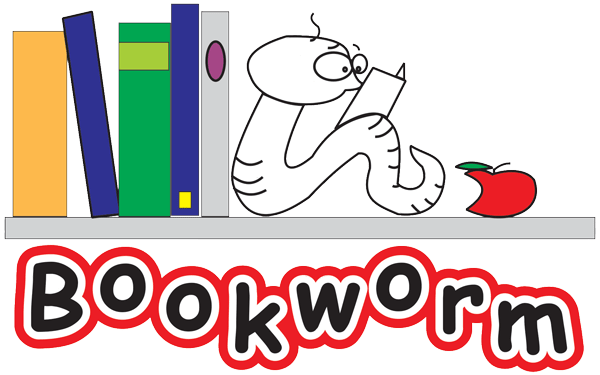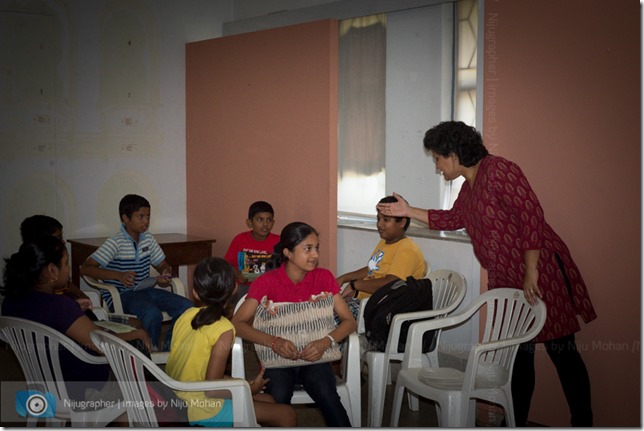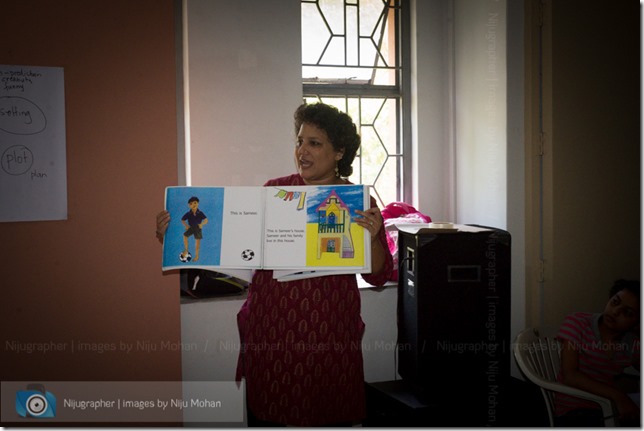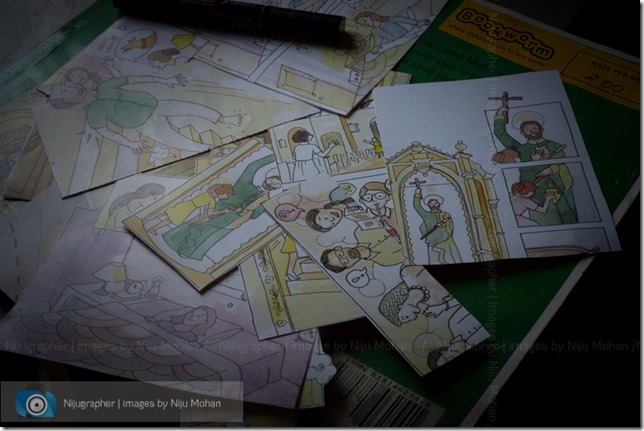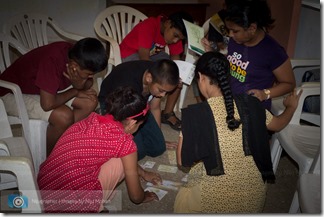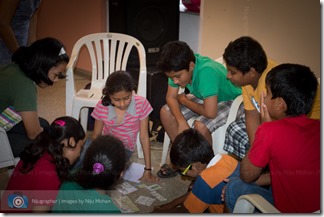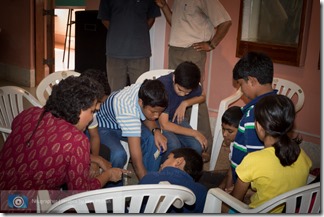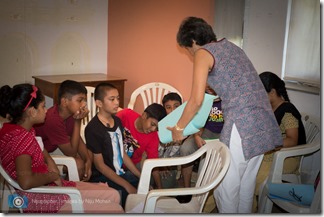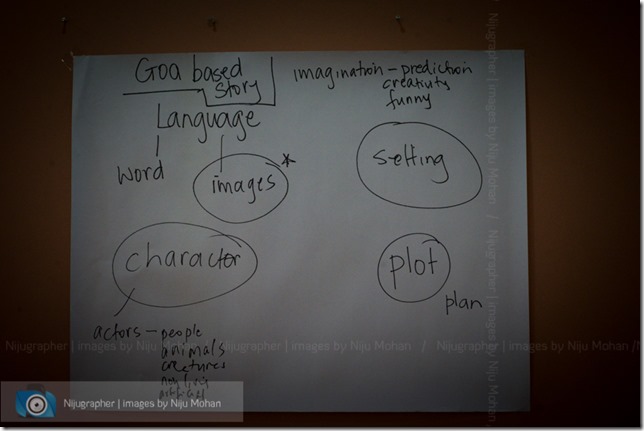Xavier Center for Historical Research ( XCHR) organised a Diwali Camp for children last week and invited Bookworm to conduct two micro sessions on Stories.
The brief was brief. Something about stories/ either reading or other to get children interested in books. Briefs of this nature tell us two things. One is that organisers have not forgotten the role that books and reading play in the life worlds of children.
Two is that we imagine it is a simple intervention. A brief immersion and voila, you have a reader.
Reflection tells us and experience has shown us that immersing children in books and getting them hooked, is no simple or simplistic task. The reading process itself is so complex, the social lives and worlds of our children even more complicated.
Participating in this workshop meant a wee bit of HW. Despite years of work in this area we still prep and prepare. The young and reckless call us names like Obsessive Compulsives, but name calling is hardly a deterrent, so prepare we must!
I reviewed the theme and topics of the Diwali Camp and recognised a theme around Goa, its history and culture.That was heartening. It was actually a celebration to know that a community cares enough to want to immerse it’s young deeper into the past to make sense of the present.
At Bookworm, we raced through our shelves identifying books that the blurbs claimed are ‘ Goa related’. Some time later, we came up for air and realised that the only book that captures the culture of Goa in word and visual was Once Upon a Feast.
So we set off with a session plan to encourage writing and thinking about books and stories. Many moments, games and think alouds later, the children were given illustrative images from OUF and asked to create their own Goa story.
Group work a foreign concept in the Indian education system plays itself out typically in ‘camps’ like these. Every group had a natural leader. Every group had one ‘other’ who was contending for leadership but not strong enough and every group had do-ers, silent spectators and those who were switched off , ‘ whatever!’ being the chorus resounding in their heads!
The stories created in that short time with enormous social and time pressures demonstrated the fact that narratives are part of the human cognition and everyone tells and creates stories – naturally.
On day 2 of the camp we invited Fatema Barot, the illustrator of OUF. Fatema who is a natural educator spoke about the process she used to marry text to visuals. She spoke about the repeated drafts, the field work to get authentic views of the Church and the community, the interviews with the author and her family and she shared her original watercolour sketches.
From the BW point of view, we always feel inspired to take stories and opportunities to think about stories to as many groups and spaces as are possible in this life time. We hope the participants felt at least some of this energy and passion and we know we learnt from doing this and we celebrated our choice in producing OUF – it is a good book!
